第43章 Chapter 6(5)
In this manner, the establishment of taxes on consumption has covered Europe with four hosts of clerks, inspectors, agents, who, by incessantly struggling with each citizen about pecuniary interests, have contributed to render authority odious to the people, and accustomed men to elude the law, to violate truth, to disobey, and to deceive. The more heavy and multiplied these taxes are, the more rapidly will immorality make progress. Goods destined for the consumption of the rich, presenting, in the same bulk, a much greater value than goods consumed by the poor, offer a much more powerful encouragement to smuggling; they have hence been necessarily subjected to far lower duties, that fraud might not altogether escape with them from taxation; and by pushing things to extremes, the most unjust inequality has been established among contributors; liberty has been encroached on by vexatious inquisitions; the manufactures, the trade, even the existence of those who labour and who should create every kind of wealth, have been endangered. Those counties which have enjoyed the highest prosperity are exactly those in which this aggravation of indirect taxes threatens every kind of industry with the most complete ruin.
Governments have not been contented with taxing revenues and expenditure; they have gone forth to seek out all the acts of civil life which might afford them an opportunity of asking money. Some have established capitations, which, weighing equally on the poor and the rich, force the man to pay who has nothing, for whom society does nothing, equally with him who has too much; for whom society lays out enormous expenses. Others have attacked with considerable imposts, inheritances, sales, and all exchange of property; though, in thus encroaching on capital, not on revenue, they diminish the productive cause of wealth, nearly as if tithes were levied on the seed, instead of being levied on the crop. Others have established imposts on loans, by pledge and judicial acts, on stamps, and a train of accidents which ought to be taken as Symptoms of poverty, not of riches. Others, in fine, by establishing lotteries, have profited by encouraging a ruinous vice.
This review of the different kinds of taxation shows clearly, that one of the most essential qualities which a nation can ask in its government is economy. States, in the vigour lent them by freedom, in the full enjoyment of all their advantages, give way to all the dreams of ambition; they listen to all the suggestions of pride, of jealousy, or of vengeance; under the pretext of being on their guard against distant or imaginary dangers, they rush headlong, with light hearts, into ruinous wars, and persist in them with obstinacy; though the voice of humanity calls for peace in vain, the superiority of their nation does not yet appear sufficiently established, their enemy is not yet sufficiently humbled; the work which they thought accomplished has been overturned; it must be reestablished at any price.
Present resources, however, are exhausted, and recourse is had to borrowing: credit is still entire; the national capitals are drained away from commerce, and placed, one after another, at the disposal of a minister, who dissipates them, and replaces them by assignments on the future; and the passion which blinded men for a few months, condemns their posterity to suffering for ages.
Perhaps no invention was ever more fatal to men than that of public loans: none is yet enveloped with more illusions. The passions excited by politics are so violent; the questions to be decided by negotiations or by arms so important; all sacrifices become so natural, when the prosperity, the existence, the honour of all are at stake, that governments and the people, before yielding, are to exhaust every resource to the very uttermost.
They will send out the last man to battle, they will expend their last shilling, if they can possibly dispose of either; and they will do this not alone for the safety of the people, but for any war, any quarrel in which they happen to engage, because there is no one in which their offended pride may not be confounded with honour, in which they cannot honestly say what is true only in extreme cases, that a nation had better cease to exist than exist dishonoured.